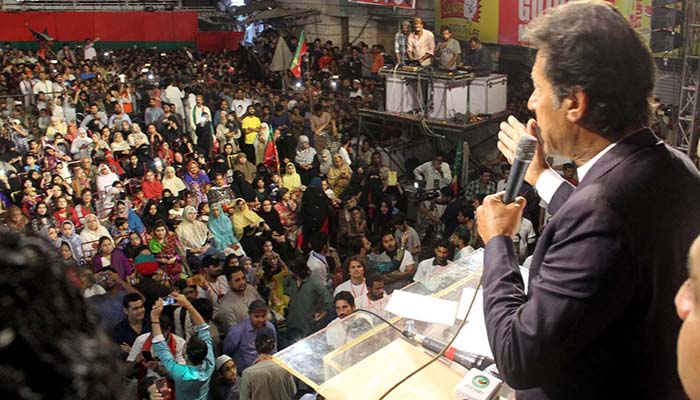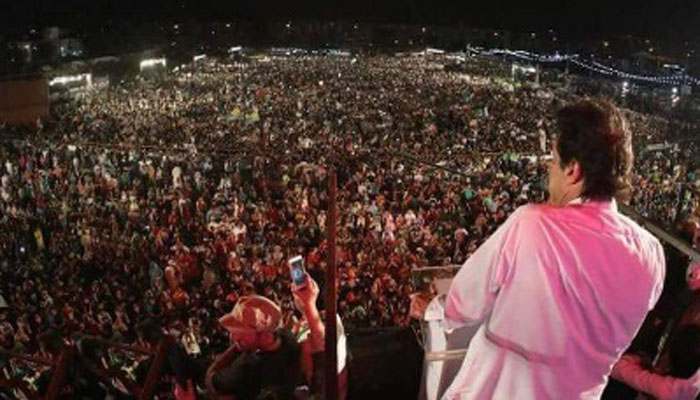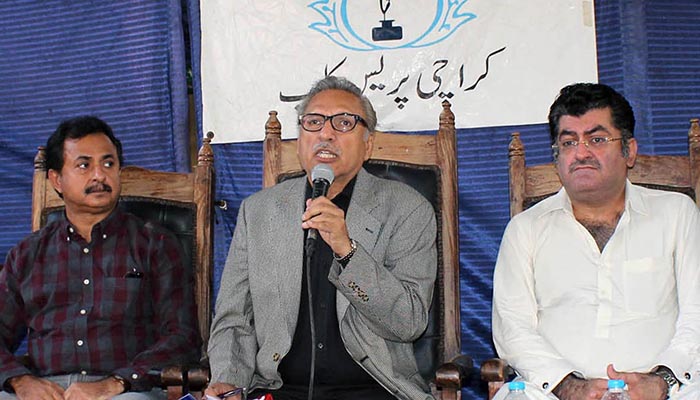In Karachi, the previously entrenched Muttahida Qaumi Movement-Pakistan (MQM-P) will be going to the polls weakened by internal rifts and fractures. Since 2013, its alleged militant wing has also been crushed due to action taken under the Karachi Operation. All these factors combined have opened up a political lacuna that its rival, the Pakistan Tehreek-e-Insaf (PTI), is determined to fill.
As the electoral campaign heats up, the PTI is presenting itself as the prime challenger on the MQM's turf. Last week, PTI Chairman Imran Khan’s nomination papers were filed in NA-243 (previously NA-253) constituency in Karachi, wherein 2013 the party’s candidate bagged an impressive 61,913 votes.

“There are 21 National Assembly seats in Karachi,” explained Firdaus Shamim Naqvi, the president of PTI in the city. “We believe we can easily take half of these without a seat adjustment with another political party.”
The claims cannot be easily brushed off. Khan’s party did emerge as the second largest political force in the metropolis the last time Pakistan went to vote. Then, their candidates were runners-up in 15 constituencies.
“Had the MQM not manipulated the polls, the PTI would have bagged more seats,” a former MQM-P leader, who has now defected to Mustafa Kamal’s Pak Sarzameen Party, told Geo.tv on the condition of anonymity.
Naqvi agrees. “Our mandate was stolen from us in at least seven National Assembly constituencies.” He further estimates that the pre-delimitation constituencies of NA-239, NA-252, NA-253, NA-256, NA-245 and a seat from the District West could have been winnable.
But we are no longer in 2013. Has the party been able to maintain its strength and support base in the city over the last five years?

The PTI leaders are confident of success, largely due to setbacks in the ranks of other political parties. The MQM is splitting into smaller groups, insists Naqvi, the Pakistan Peoples Party has yet to garner mass appeal in Karachi, and the people have turned their backs on the Jamaat-e-Islami and newly-formed Pak Sarzameen Party.
Zia-ur-Rehman, a senior journalist in Karachi, isn’t too sure about PTI’s footprint in the city. “It raked in the second majority votes in 2013,” he says, “But the wave is not there anymore, mainly because the PTI lacks organisational structure. The party’s real focus in the upcoming election will be on securing NA-247 (contested by PTI’s Dr Arif Alvi) and NA-243 (contested by Imran Khan).”
The organisational disorder Rehman is talking about can be sensed by others too. Subhan Ali Sahil, the PTI’s District West president, blames Naqvi, Alvi and party leader Ali Zaidi for a lack of communication in the party circles.
“The troika has left us nowhere,” he tells Geo.tv. “District West was our stronghold. There are five NA seats here. But the party leaders have awarded three tickets to candidates who belong to District South and are completely unknown here.”
Sahil further blames the three men for making ill-informed decisions which led to it being trounced in the local government election.

But all is not lost, it seems. Journalist Rehman foresees the party denting the vote bank of Muttahida Majlis-e-Amal, a religious parties' alliance, in the Pashtun-dominated areas of the metropolis.
“In the long run, we might see the electoral mandate of the MQM shrinking further, subsequently resulting in the expansion of the vote bank of other parties.”
Cover photo: PTI workers listening to address of chairman Imran Khan during a rally in Karachi on December 13, 2017. Photo: Online


